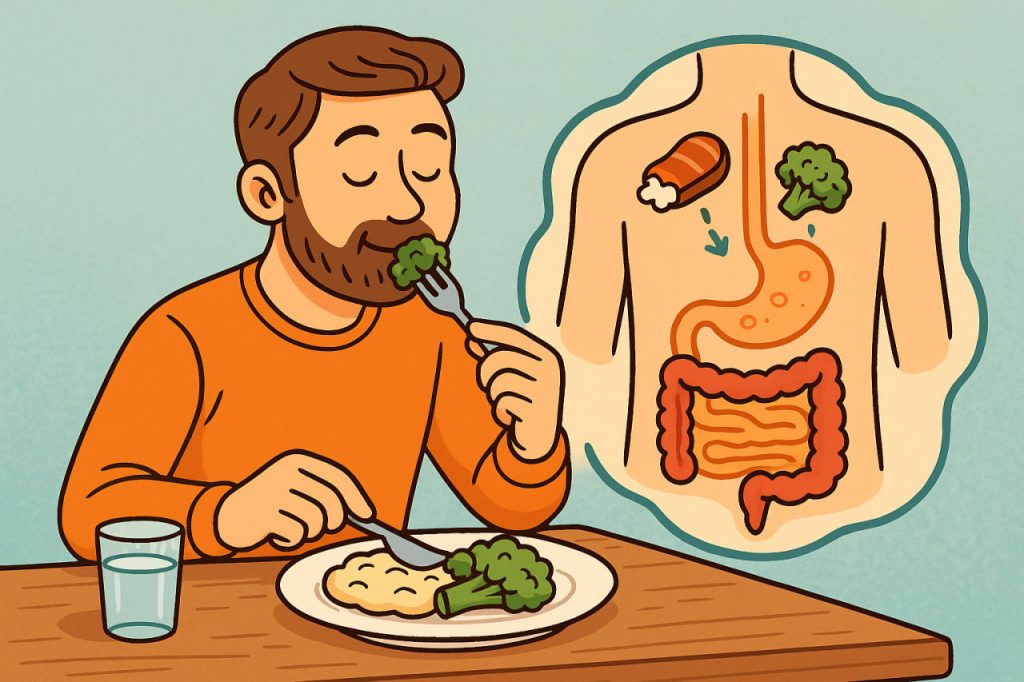Chewing food may seem like a simple action, but it plays a critical role in digestion and overall health. Proper chewing not only makes eating more enjoyable but also ensures that the body absorbs nutrients efficiently. Skipping this step or rushing meals can lead to digestive problems and long-term health issues.
The Role of Chewing in Digestion
Chewing, also called mastication, is the first step in the digestive process. When food is broken down into smaller pieces, it increases the surface area, making it easier for stomach acids and enzymes to act on it. Saliva, produced during chewing, contains enzymes like amylase that begin breaking down carbohydrates right in the mouth.
Nutrient Absorption
Properly chewed food allows the stomach and intestines to absorb nutrients more effectively. Large, unchewed chunks take longer to digest and may pass through the system without releasing all of their nutrients. Chewing ensures that vitamins, minerals, and energy are made available to the body.
Prevention of Digestive Problems
Eating too quickly and swallowing poorly chewed food can cause issues such as bloating, indigestion, and acid reflux. Proper chewing reduces the risk of these problems by making food easier to process and preventing the stomach from being overloaded.
Weight Control and Satiety
Studies show that people who chew slowly and thoroughly tend to eat less. Chewing gives the brain enough time to register fullness, preventing overeating. This simple habit can contribute to healthy weight management without strict dieting.
Oral and Dental Health
Chewing stimulates saliva production, which helps wash away bacteria, neutralize acids, and protect teeth from decay. It also strengthens the jaw muscles and supports overall oral health.
Mindful Eating
Taking time to chew properly encourages mindful eating—being aware of food’s taste, texture, and aroma. This not only improves digestion but also enhances the enjoyment of meals and reduces stress while eating.
Conclusion
Chewing food properly is essential for digestion, nutrient absorption, weight control, and oral health. It transforms a simple act into a powerful tool for overall well-being. By slowing down and giving meals the attention they deserve, we can greatly improve both physical and mental health.
Glossary
- Mastication – the process of chewing food.
- Enzymes – proteins that speed up chemical reactions in the body, including digestion.
- Amylase – a digestive enzyme in saliva that breaks down carbohydrates.
- Satiety – the feeling of fullness after eating.
- Mindful eating – eating with full attention to the experience of food.


